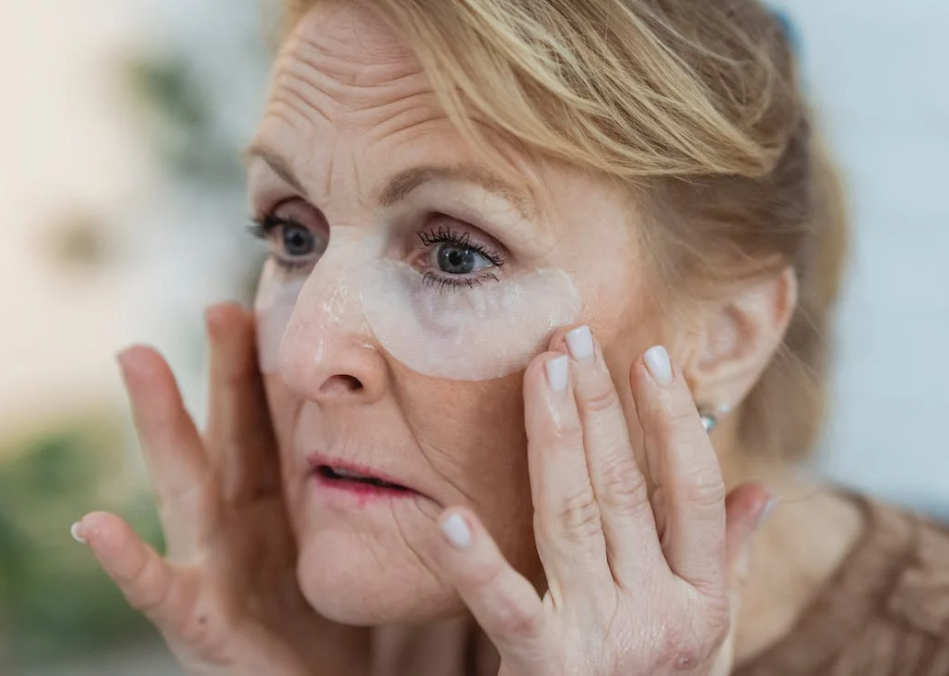Can Self Improvement Cause Depression?
Find out if self-improvement can lead to depression.

Selfpause Affirmation App
Download the app to get 1,000’s of affirmation meditations and everything you need to write, record and listen to your own.
Low self-esteem can have a variety of negative effects on people. For example, people with low self-esteem are less likely to be able to enjoy new experiences and may be more apt to avoid new challenges. Low self-esteem can also make people less able to empathize with others and may lead to problems communicating with others.
Low self-esteem can lead to depression in any age, but its impact on adolescents is greater than in adults. Growing up is never easy, and adolescents must deal with a lot of challenges. Developing a positive attitude is important to survive this challenging phase. During this time, they also need to learn new skills and meet new challenges. It is important to remember that these challenges do not last forever, and low self-esteem is no exception.
There are many scientific studies that support the theory that low self-esteem is a major cause of depression. These studies have shown that both men and women are prone to depression. In addition, the vulnerability model predicts that people who are depressed are more likely to have low self-esteem.
People with high self-esteem have confidence in their own abilities and believe in themselves. They don’t engage in negative self-talk, and they take responsibility for their actions. People with high self-esteem tend to be open and honest with others, and are more likely to forgive others. In addition, they are more likely to be successful in relationships and don’t seek out validation from others.
Changes in routine

Getting back to a routine is an effective way to combat depression. It provides structure and reduces decision fatigue. Moreover, a new routine can help you regain motivation. Here are some tips to get your routine back on track: 1. Create a new routine. Make sure that it is a routine you enjoy.
Make sure you go to bed and wake up at the same time every day. A consistent schedule helps you sleep better and feel more refreshed in the morning. It helps you avoid the temptation to stay up late watching TV or scrolling through social media. Try getting some exercise too. For physical and mental reasons, exercise can boost moods and reduce feelings of depression. However, exercise alone won’t cure depression. Psychotherapy might be necessary in more severe cases.
Stressful life situations may also cause depression. Many people experience stressful situations in their daily lives. Stress and anxiety can make it difficult for a person to feel energized and happy. Stress and anxiety are also known to increase depression symptoms. Moreover, changes in routine can result in increased feelings of anxiety and depression.
Changes in routine can lead to depression, even if they are beneficial. While it is natural to feel sad every now and then, feeling down on a daily basis is a sign of depression. A depressed state can interfere with daily activities and lead to serious health problems. Fortunately, there are ways to cope with the emotional and mental impact of a change in routine.
Healthy habits are associated with lower levels of depression in people who are healthy. A healthy routine helps you maintain a positive mindset and helps you feel happier. Gratitude is an essential part of life, and making time to acknowledge the small things in your life can have a positive impact on your overall wellbeing.
Journaling

Journaling can be a great way to process your emotions. It can serve as a quick therapy session and can help you think more positively about your life. It can also help you reduce your anxiety levels and your tendency to take your bad mood out on others. By journaling, you create a safe space for your unconscious mind to let loose.
Journaling can also be an excellent way to identify patterns of negative self-talk and self-doubt. By writing about negative thoughts and feelings, you gain distance from them and can begin to develop alternative coping mechanisms. In addition to clearing the mind, journaling can improve your confidence.
Although journaling can improve your mental health, it shouldn’t replace other treatment methods. Continue to work with your therapist and take prescribed medications if you suffer from mental illness. However, journaling is a great way to create a vision for your life and to create goals. If you’re struggling with depression, journaling can be a good option to overcome your mental state.
When journaling, set a time limit. You can start with five or ten minutes per day, and build up from there. When you feel comfortable, you can even journal for up to twenty minutes. Remember, you’ll be able to read your journal entries later on. Just make sure you don’t ramble about your negative feelings.
Journaling helps you focus on your positive thoughts and feelings, and helps you address specific problems. You can also use it to reduce stress, which can be helpful in addressing your depression. When you journal, you have the opportunity to focus on the positive aspects of your life, which is often buried in your mind. It can even help you deal with severe trauma.
Cognitive behavioral therapy

Cognitive behavioral therapy (CBT) aims to reduce depression by changing thoughts and actions. It is often more effective than other forms of therapy because it can be done quickly and affordably. It is also an option for people who do not want to take psychotropic medications. However, it can be difficult for some people.
Many of the techniques in CBT are based on a theory that states that changing one’s thoughts will change one’s behavior. This is not always the case. Some people experience depression as a result of the process. Although cognitive behavioral therapy is often helpful for those with depression, it is not effective for everyone.
Cognitive behavioral therapy involves identifying and defining goals. It also involves learning problem-solving skills. It can reduce the negative effects of depression, anxiety, and judgment. In addition, it can help patients develop strategies to improve their quality of life. In addition, it involves self-monitoring, or diary work, which involves tracking behaviors and experiences. This data is then shared with the therapist.
Cognitive behavioral therapy can be effective for mild symptoms of depression. A therapist can teach CBT techniques for depressive episodes and help people apply them when they arise. The therapist can also help people schedule activities that will improve their mood, such as concerts, lunch dates with friends, or road trips. This helps to create positive experiences that inspire people to keep moving forward.
CBT for depression is an effective treatment that helps individuals develop better skills and behaviors. It has been used in the treatment of depression for over 50 years and is considered the gold standard for major depression. Recent studies have shown that CBT improves depressive symptoms, anxiety, and psychosocial functioning. By incorporating technological tools, recent digital CBT approaches have improved accessibility and cost effectiveness.
Light therapy
Some studies show that using light therapy for self improvement can help people with depression. This type of therapy uses bright, focused lights to improve your mood. Those who are suffering from depression should consult their doctors to determine whether light therapy is right for them. This treatment has also been known to trigger manic episodes. It is not recommended for people who are already severely depressed.
Although many studies show that light therapy is safe for most people, there are some risks involved. Some people have reported side effects such as eye strain, dry eyes, headaches, and insomnia. However, these side effects are generally minor and will pass after a few days. People with sensitive skin should also talk to their doctors before using this therapy.
Light therapy is beneficial for a variety of different conditions, including depression and seasonal affective disorder. It may also be helpful for pregnant women and elderly individuals, who may spend more time indoors in dim light. It is also beneficial for people who have limited mobility or those who are prone to depression.
This study found that light therapy can reduce self-report scores for depression by -1.3 on the BDI-II and -1.2 on the POMS-D. One session of active light was sufficient to achieve this significant effect. The study’s use of a placebo design may have limited the effects of light therapy on depression.
Red light therapy can also reduce the symptoms of depression. Because red light stimulates melatonin production in the body, the treatment can help a person cope with depression. The treatment also helps increase cellular function and improve overall energy.
Our Top FAQ's
Yes, it is possible that focusing too much on self-improvement can lead to feelings of inadequacy or failure if an individual sets unrealistic goals or expectations for themselves. It is important to set achievable goals and to be kind and compassionate with oneself when working towards self-improvement.
The pressure to constantly improve oneself can contribute to feelings of depression if it leads to feelings of inadequacy or failure. It can also contribute to feelings of anxiety or stress if an individual feels overwhelmed by the demands placed on them to constantly improve.
Yes, the pursuit of self-improvement can lead to an unhealthy level of perfectionism if an individual becomes overly critical of themselves or others, or if they have unrealistic expectations for themselves. It is important to strive for progress, rather than perfection, and to be kind and compassionate with oneself when working towards self-improvement.
It can be helpful for individuals to practice self-acceptance and self-compassion as they work towards self-improvement. This may involve reminding oneself that it is normal to make mistakes and to have weaknesses, and to be kind and understanding with oneself when these things happen. It can also be helpful to set realistic goals and to celebrate small victories along the way.
There are a number of strategies that individuals can use to address negative thoughts or feelings that may arise during the process of self-improvement. These may include cognitive-behavioral techniques such as reframing negative thoughts, practicing mindfulness and self-compassion, and seeking support from friends, family, or a mental health professional. It can also be helpful to take breaks and engage in activities that bring joy and relaxation, such as exercise, hobbies, or spending time with loved ones.
